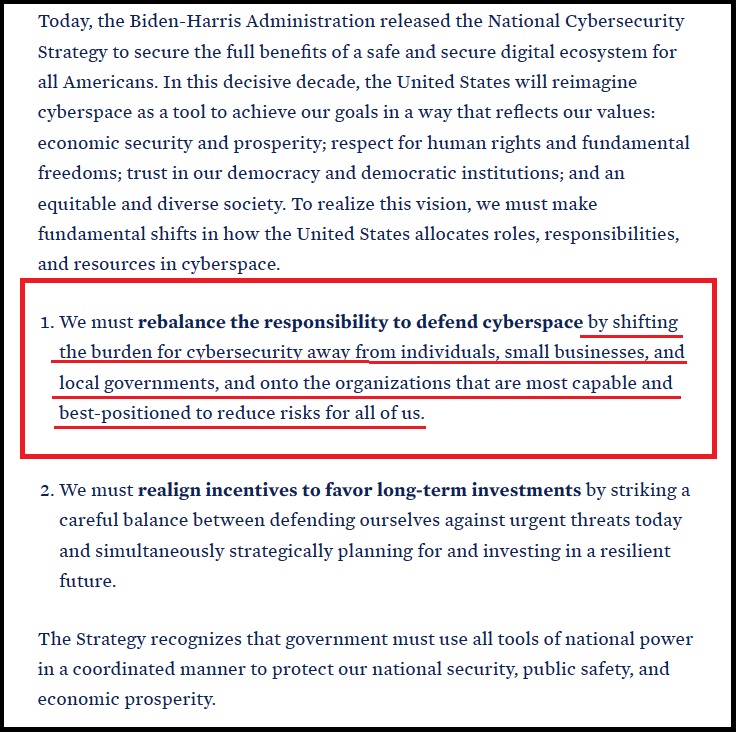CTH | Yes, the Govt is in crisis, and just as sure as you are reading this, the administrators within the IC already have the solution ready to roll.”
♦ RESULT – “We will use advanced technology and non-partisan AI programming, to make the government more efficient and ensure this level of corruption and wasteful spending never happens again.”
Every dollar will be tracked, monitored and oversight will be transparent and available for everyone to see. Just ignore the part where the same efficiency system is monitoring your real ID, connecting your personage to the new govt and private sector interfaces, and click “I agree” on your next federal tax filing. Trust us Comrade citizen, the new technologically advanced DODGE approved govt system cares about responsible stewardship and you. Swear.”
The process starts by downloading government data to an AI enhanced database for review and filtration.
Good Stuff – […] Trump created DOGE through a day one executive order with a stated mission to cut government waste. Musk and his aides have assumed control of federal IT infrastructure as his team swiftly blitzes through departments and agencies. Trump, with Musk’s guidance, this week gutted the United States Agency for International Development and merged it into the State Department. The president has signaled he might try to eliminate the Department of Education by executive order next.
“They’re putting a shot across the administrative state’s bow,” Steve Bannon, Trump’s former chief strategist, said last week of the mass federal buyout plan on his “War Room” podcast. “That’s DOGE signaling to you that they’ve got a plan of how to take the personnel down.”
[…] Federal employees who want to remain in the federal workforce were told in the “Fork in the Road” email they must return to in-person work, embrace new “performance standards” and be “reliable, loyal and trustworthy” in their work. The email also warned that most federal departments and agencies will be “downsized through restructurings, realignments, and reductions in force.”
On Tuesday, the buyout offer was extended to nearly all employees of the Central Intelligence Agency.
Some federal employees said they were alarmed at the short timeframe they were given to make their decisions.
“I have invested way too much time and energy and interest into my career to just say, ‘hell with it’ and leave when I only have, like, five to 10 years left before I retire,” one federal worker said. “I’m not taking the resigning bait. So, I guess I’ll essentially just ride down with the ship if they decide to get rid of us,” the worker added, though he acknowledged some less experienced colleagues might take the buyout. (more)
The streamlining and downsizing of government through the use of AI systems is a good thing, perhaps a very good thing. However, watch out for deployment into the DHS apparatus because that will give rise to the newly expanded Surveillance State.
Peaceniks don’t build bombs; and those who genuinely believe in liberty do not build nor support domestic surveillance networks that can be weaponized depending on who is in power.




